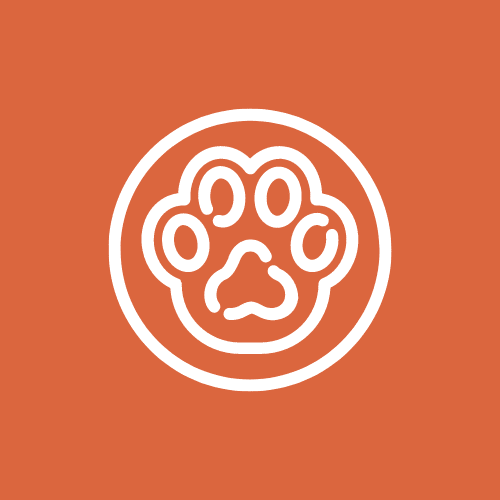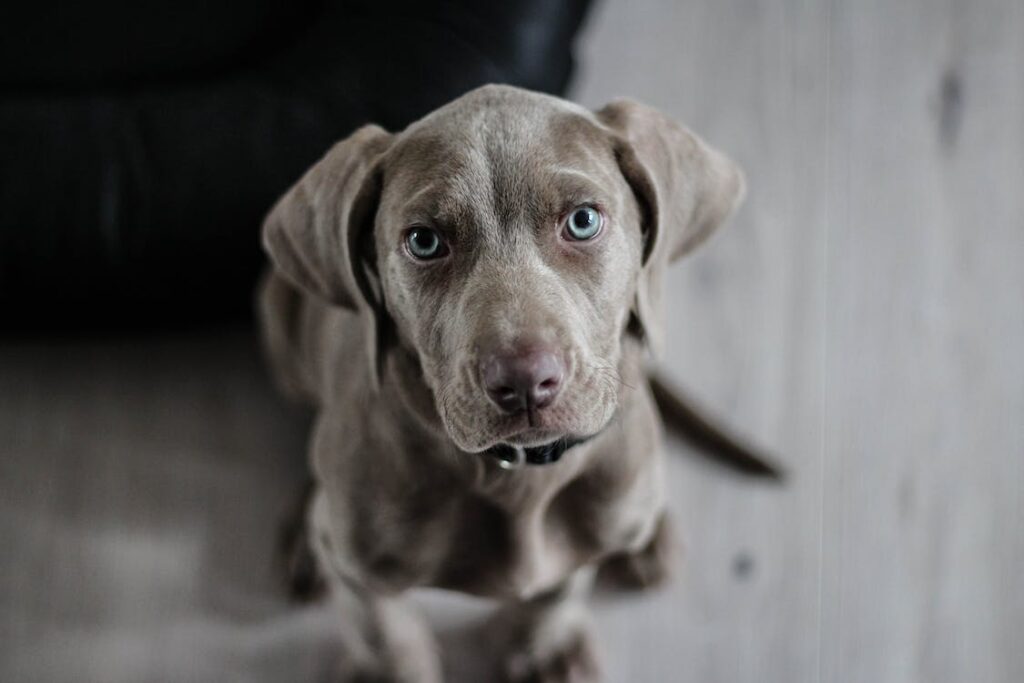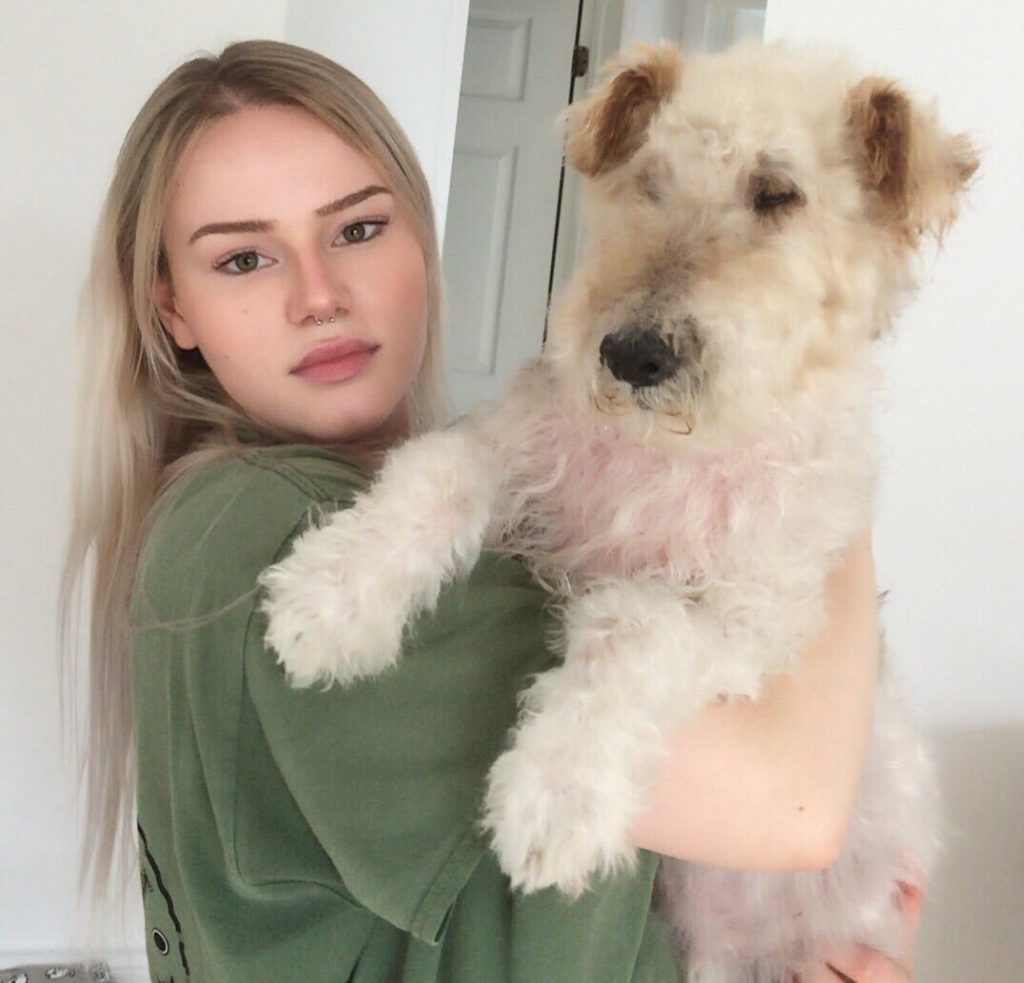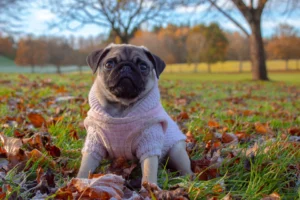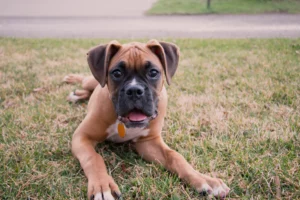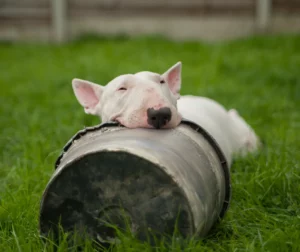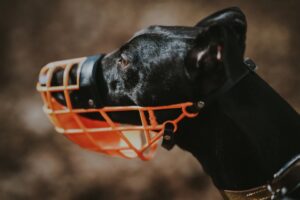Having a dog that poops during the night can be both frustrating and alarming for owners. Not only is there more cleaning to be done, but it could unfortunately indicate an underlying health issue.
In this article, we’ll look at common reasons why dogs may defecate at night and discuss steps you can take to address this unwanted behavior.
#1. Anxiety and Stress
Anxiety and stress can disrupt the normal functioning of your dog’s digestive system. The body produces stress hormones such as cortisol, which can affect intestinal motility and speed up the movement of food through the digestive system, leading to more frequent bowel movements.
It should be noted that calling on a canine behaviorist is recommended to help your dog overcome stress or anxiety.
Increased Pressure on the Bladder and Bowels
When a dog is anxious or stressed, he may feel more pressure on his bladder and bowels due to the muscle tension associated with anxiety. This pressure can cause more frequent bowel contractions, which increases the need to defecate.
Click on the link to find out how to reduce stress in your dog and increase its life expectancy: “Does Enrichment Affect Dog Longevity?”
Separation Anxiety
Today, separation anxiety is often noticed in dogs. This type of anxiety occurs when the dog is separated from his owner or family. This disorder can lead to unwanted behaviors, including gastrointestinal upset.
Separation anxiety can be associated with changes in the dog’s daily routine, lack of mental or physical stimulation, or past traumatic experiences.
If you suspect your dog has separation anxiety, it is best to consult a canine behaviorist. He will assess your dog’s behavior and give you advice and methods adapted to your family to help your dog overcome anxiety.
#2. Training and Daily Routines
Potty Training
Dogs quickly learn to associate certain behaviors, such as defecation, with positive or negative consequences.
If your dog has been accustomed to being rewarded or given attention every time he poops during the night, he may be conditioned to believe that it is better to relieve himself at night, even if there is no real need.
Inappropriate Routine
Establishing a consistent routine is crucial for ensuring your dog’s regular elimination. Maintaining a strict meal schedule simplifies managing your dog’s defecation needs. Opt for consistent meal times and avoid feeding your dog a few hours before bedtime.
If your dog doesn’t have enough opportunities to relieve himself before bed or if he hasn’t been outside at regular times, he may develop the urge to poop during the night.
Behavioral Conditioning
Dogs are sensitive to conditioning and may associate certain cues or environments with specific behaviors.
For example, if your dog has been accustomed to defecating in a particular area of the house, he may develop the habit of doing so overnight. This situation is more likely to occur if you have already punished your dog for defecating in the house.
It is beneficial to potty train dogs using positive reinforcement techniques to encourage good defecation habits.
Punishing a dog for defecating in the house does not show him where to defecate. He learns that he should not relieve himself in your presence and that the night is the ideal time to relieve himself.
Click on the link for more advice on how to use punishment well: “Dog Punishment: The Best Technique”
Physiological Needs
Some dogs may have special physiological needs that cause them to defecate at night. For example, puppies lack bowel and bladder control so it is harder for them to learn to hold it.
For some cases, it is preferable to re-teach potty training under new bases and with positive reinforcement methods.
As for older dogs, they may suffer from incontinence and defecate while sleeping.
It’s essential to understand your dog’s specific needs and give him enough opportunities to relieve himself before bedtime.
#3. Food
Digestion Problem
If your dog is fed a poor-quality diet or one that does not meet his nutritional needs, he may have trouble digesting food properly.
Low-quality dog food is often challenging to digest, resulting in prolonged defecation for your dog.
Additionally, rawhide treats may contribute to the digestibility issue, since they are not designed to be ingested. It is very difficult for a dog to digest this treat, which can delay his urge to defecate. It should be noted that rawhides can be hazardous to your pet’s health and can contribute to digestive issues.
Be sure to feed your dog a high-quality diet tailored to his individual needs.
Sudden Changes in Your Dog’s Diet
Dogs are creatures of habit, and any sudden change in their diet can upset their digestive system.
If you recently changed your dog’s food, it could also change his defecation habits. When you change your dog’s diet, it is recommended that you do so gradually over a period of several days to allow his digestive system to adapt slowly.
Meal Regularity
Having a strict schedule for meals plays an important role in dogs’ bowel habits. If your dog doesn’t have a set time for his meals or if meals are too close to bedtime, he may need to poop during the night.
Establish a consistent eating routine by giving his meals regularly and ensuring he has plenty of time to relieve himself before bedtime.
Food Intolerance Issues
Some dogs may develop intolerance or sensitivity to certain foods, such as gluten, dairy products, certain additives, and certain proteins.
These intolerances can cause digestive disorders, such as loose or frequent stools, abdominal pain, itching, and hair loss.
#4. Health Issues
Intestinal Parasites
Intestinal parasites such as worms can cause increased stool frequency in dogs. These parasites can cause irritation and inflammation of the intestinal tract, which leads to more frequent bowel movements.
If you notice worms in your dog’s stool or if he exhibits other symptoms such as anal itching, weight loss, or a dull coat, see your veterinarian for proper testing and treatment.
Gastrointestinal Infections
Bacterial, viral, or fungal infections can cause gastrointestinal upset in dogs. These infections can lead to frequent, watery, or bloody stools.
If your dog shows signs of gastrointestinal infection such as vomiting, persistent diarrhea, fever, or lethargy, consult your veterinarian promptly.
Digestive Disorders
Certain digestive disorders, such as colitis, gastritis, or malabsorption, can affect your dog’s ability to hold stool at night.
Such disorders can result in inflammation of the digestive system, alterations in stool consistency, and increased frequency of elimination urges.
Bladder Problems
Bladder problems, such as UTIs, urinary stones, or urinary incontinence, can also influence your dog’s bowel habits.
When the bladder is irritated or the dog has trouble controlling its urine, it can lead to an increased frequency of bowel movements.
If you notice signs of a bladder problem in your dog, such as frequent urination, difficulty urinating, or urinary accidents, consult your veterinarian.
Optimizing Your Dog’s Habits
If the problem persists despite your efforts, it is advisable to consult a veterinarian to rule out all possibilities of a health problem.
If the problem is behavioral, seek help from a qualified canine behaviorist. They will be able to assess your dog’s situation, identify contributing factors, and provide you with specific advice and strategies to help your dog normalize his bowel habits.
